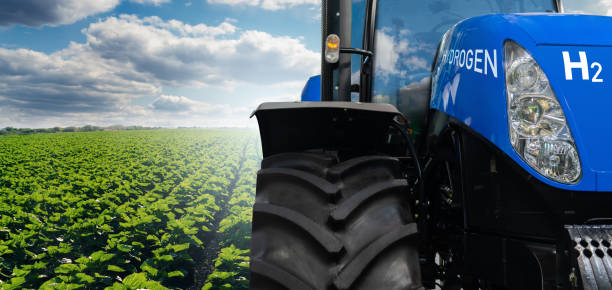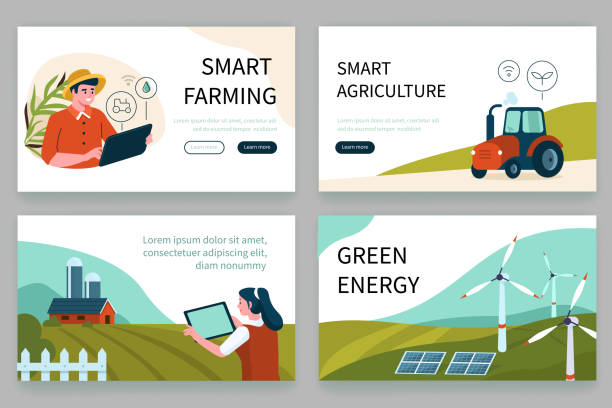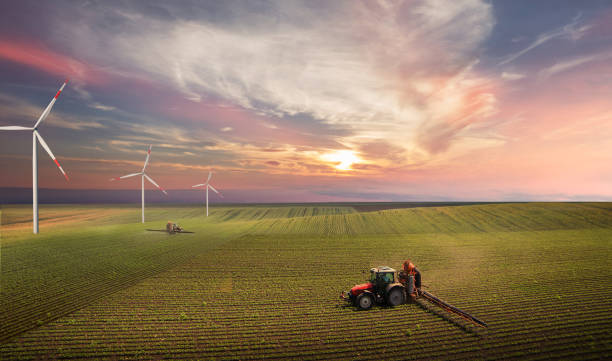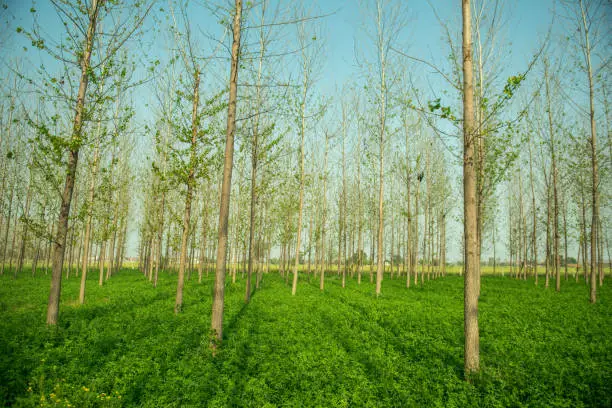Exploring Healthy and Efficient Farming Practices

Agriculture is critical to the global economy due to its impact on employment and providing all the needed global food. As the global population expands, agriculture is drifting to unsustainable practices, which can have environmental effects.
However, due to climatic changes such as increased global warming, farming practices must be changed to make them more efficient. The need for efficiency is also driven by increasing demand for more sustainable food to meet all demands.
Efficient agricultural practices should apply to all agricultural methods, such as irrigation, farm preparation, harvesting, and other subsequent activities, such as logistics. Targeting all these individual practices makes agriculture efficient at all stages, and achieving reforms critical to make the entire industry green. Here are some measures to implement to make agriculture more efficient.

Switch to Renewable Energy Sources
Large-scale farming in countries such as the US largely depends on machines to accomplish every activity. Most of these machines are powered by fossil fuel, making the agricultural sector a contributor to global warming and climate change.
For instance, soy farming depends on machines for harvesting, tilling farms, planting, spraying, and other activities. After harvesting, the supply chain and logistics processes largely involve fossil fuel power trucks transporting the goods.
Therefore farming in the US should extend to continue to renewable energy practices. First, farmers and large corporations should rely on electric-powered machinery to prepare, plant, and harvest.
Major logistical players should rely on electric and hydrogen-powered trucks to transport the goods to the required destination. Soy would greatly contribute to environmental preservation through sustainability practices at all stages.

A greater emphasis on sustainable farming mainly focuses on crop farming. Many companies are now dedicated to farm high quality crops such as soy products following such practices.
However, it’s a time farmers diverse to implement such practices for animal farming. Animal farming is one of the greatest contributors to the ozone methane, one of the gases causing global warming.
Instead of disposing of the waste, animal farming practices can be ideal for generating renewable biogas energy to replace fossil fuel generators.
The success of these practices can be supported by more renewable policies committed to greening farming practices regardless of the type of agriculture.
Diversify the Potential of Farms
Large-scale farms can be sued for multiple activities besides normal crop production. Farms can be ideal for other renewable energy practices, mainly energy production. One of the practices involves using farms to produce cleaner energy, such as renewable wind energy.
Due to their large scale and the need for farms to go green, farmers can install windmills in certain positions in the farms to produce the clean energy needed for powering the new and green farm machines and equipment. The other practice is transforming animal farming into an ideal renewable energy source.
Animal farming, such as dairy farming, can rely on animal sheds and shelter rooftops to install solar panels on the roofs. Solar energy can power milking machines, preservation systems, and all other indoor heating and cooling needs for animals.
Besides, these farms can also produce clean biogas energy for home and sell to the grid. Besides farming, there should be increased use of plant products such as soy and corn to produce plant biofuels.

Smart Irrigation Systems
Large-scale and traditional irrigation practices significantly impact the environment, especially water volumes wasted and depletion in underground water sources.
Traditional large-scale farming relies on open spraying or piping of water to the plants and the farm. This means that much water is wasted as it is sprayed in areas with no crops or sometimes does not target the crops.
Other practices, such as flooding irrigation, further worsen the situation since the water is wasted. Therefore, new irrigation practices focus on reducing wastage, targeting the crop, and improving renewability. One practice is drip irrigation, which targets the crop roots to ensure water is only poured on the needed areas and the crop.
The second practice is monitoring the soil humidity capacity to supply only the needed water. Such practices ensure only the needed amount of water is supplied and the plant absorbs all the water provided, thereby reducing water lost to plant transpiration. Due to the new technologies, smart systems can also adopt IoT to boost the impact of smart irrigation.
Instead of relying on soil agriculture and irrigation practices, new agricultural and irrigation practices focus on using rock wool slabs for hydroponics. Such slabs are ideal for withholding the water longer for plants to absorb, and they facilitate water recycling within such farms. This should be the new sustainable irrigation practice for all indoor farms to boost water efficiency.
Organic Farming Practices
Global farming is dominantly driven by inorganic practices using fertilizers, chemicals, and nutrition. These practices further extend to affect consumers who directly ingest these chemicals. The inorganic practices also affect the climate and the soil quality.
There are many arguments, such as organic practices cannot be applied to large-scale farming due to the vast area to cover. However, there are many places where these practices can apply, and some measures are already in practice.
One of the practices is the introduction of aquaponics to all hydroponics and vertical farming practices. The two can mutually depend on each other since the fish will provide the nitrogen needed for plants, and the plants purify the water for fish. This is significant for boosting fish and plant agriculture production levels.
For other practices, farmers can resolve the use of organic chemicals to control pests and hazards that can affect farms. For small-scale farming, there should be an increased reliance on mulching and organic pest control methods.
Other practices include rotational crop farming practices to help control the type of pest in the soil and the type of nutrition available, which can affect crop production and levels.
Agroforestry
The global population and agricultural practices threaten the forest cover in the world as more trees are cut to pave land for practices such as soy farming. One of the problems is evident in Brazil’s Amazon regions, where more trees are cut for soy production.
Instead of cutting more trees, existing farms should create more room for trees. For instance, farmers can plant more trees on the edges of their farms; this would still allow machine operations while increasing the global forest and tree coverage.
Such policies can also be implemented for crops such as coffee, bananas, and tea, which depend on trees as windbreakers. Other farms, such as animal farmers, should plant more trees to provide shade and improve the impact of their lands on environmental sustainability.

Due to the large-scale practices, agriculture significantly impacts the environment, hence the need to promote sustainable practices. These practices relate to smart irrigation, organic chemicals and fertilizers, agroforestry, and implementing renewable energy sources.
Such practices are ideal for boosting agricultural production, reducing the direct impact on the environment, and supporting sustainable diets and food consumption.
Author: Rebecca Smith ( Blogger & Influencer )
“I am a freelance blogger with a passion for writing and a love for words. With several years of experience in creating content for various industries, I have developed a strong skill set in research, writing, and editing. I am skilled at crafting engaging and informative articles that capture the reader’s attention and convey the message effectively. My writing style is versatile, and I am comfortable writing on a broad range of topics, from technology and lifestyle to health and wellness.” –rebecca.smith@healthybox.org
